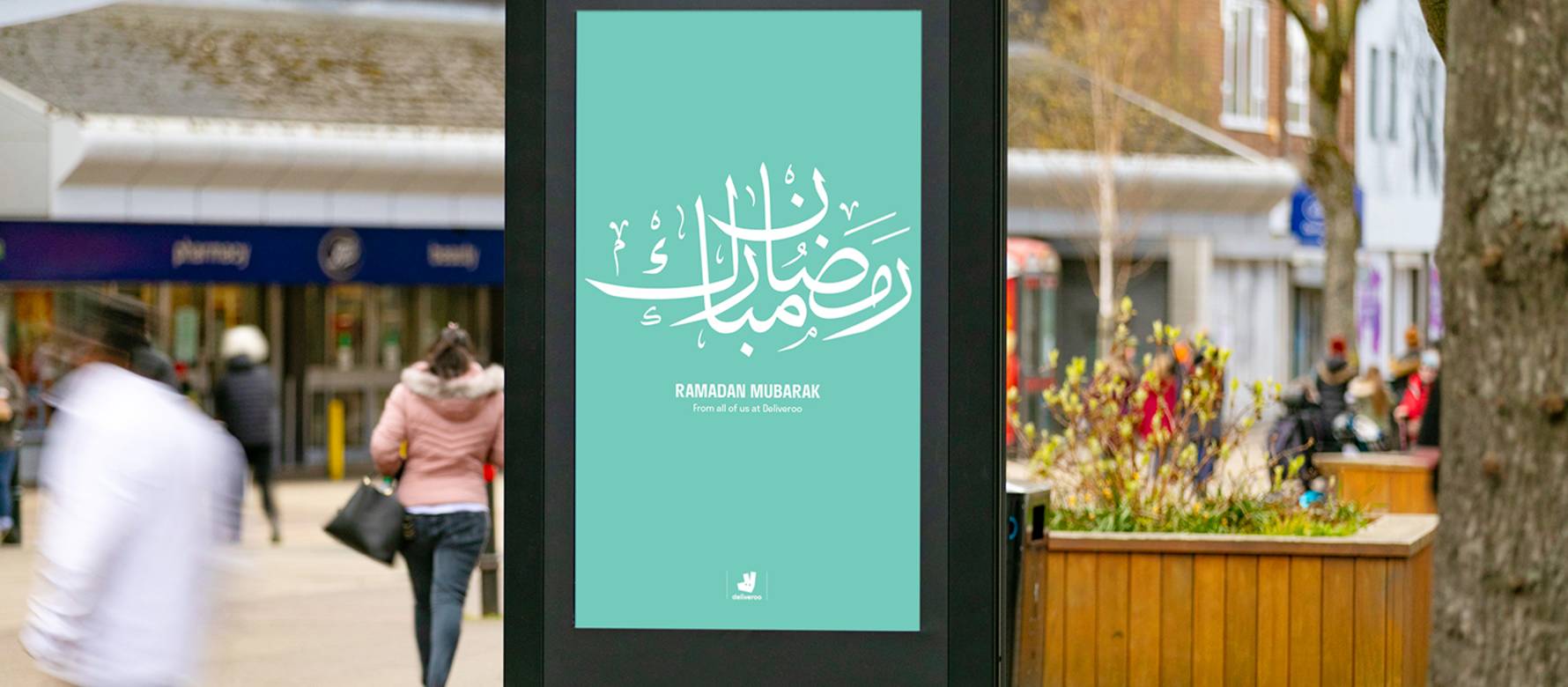
In an increasingly diverse UK, as brands look to align their social values with consumers to create a sense of connection and understanding, Clear Channel's new research on Religious Occasions explores the buying behaviours, sentiments, and demographics around these moments.
What does embracing inclusion look like?
I was recently indulging in some reality TV, following the relationships of ten couples, when my housemate let out a cynical laugh at her observation that a national TV show had skimmed over the story of one Asian in its entire white cast. In that moment, as an East Asian woman, I realised that the true representation of our culture has not been fully embraced by mainstream media.
As I continue to tune into my most loved TV shows, scroll through my social feeds, and purchase from my favourite brands, I wonder if others like me also feel disconnected from the media and advertising they consume. The reality is that (in)visibility and stereotyping in media is still a problem. Our media and advertising should reflect real people, in the real world. And yes, that does include different profiles of people in society.
Mirror a true reflection
WPP’s study, The Consumer Equality Equation, found 83% of respondents from minority ethnic groups and 75% of white correspondents agreed that brands should make more of an effort in understanding different ethnic groups. Brands have a responsibility to reflect modern Britain. We have reached a point where including people who visibly look diverse in your line-up just doesn’t cut it anymore. Brands need to take time to truly understand the traditions, celebrations and challenges of the people they’re using in their branding and content.

Make sure it’s authentic to your purpose
Advertising has the power to build consumer trust when brand communications are more representative of different ethnicities. With moments like Lunar New Year, Eid and Diwali, brands can create a sense of community with their consumers. The UK is more diverse than ever before, with a +39% growth in ethnic minority population in the last decade. Underrepresented groups and their allies hold huge spending power. For example, Eid follows Christmas and Easter as the third-biggest season for UK businesses.
Clear Channel’s latest research, Religious Occasions, thoughtfully delves into the buying behaviours, sentiments and demographics of those celebrating Islamic, Jewish and Hindu holidays.
Before a brand taps into a diaspora or embraces their traditions, they must ensure their social values align with their consumers. People want to feel seen and understood. Our research reveals 70% of those from minority backgrounds are more likely to support a brand that has relevant advertising to their local community. 77% of people feel brands have a social responsibility to evolve at pace and lead in reflecting the multicultural society of today. The challenge is to find an approach that is authentic, avoiding tokenism that may come across as a tick-box exercise.
For each of the most prevalent religions, our research has identified the key audiences who celebrate the occasion and what activities they plan to do – from seeing friends and family to purchasing a gift. To get your copy of our full Religious Occasions deck packed with all the latest insights, fill in the form below and we'll be in touch.
For a flavour of some of the key insights, watch our short Religious Occasions video below...
So yes, being inclusive does mean a lot
82% of Brits agree brands have a huge influence in setting culture* and brands can no longer ignore the robust figures driving the attitudes and intentions of cultural moments and traditions.
When planning your next media campaign, remember to also consider which mediums have the ability to drive inclusion. It is important to keep in mind how communities, and their allies feel welcomed and understood by each medium. Easily accessible and credible, Out of Home (OOH) has proven to be an inclusive channel for everyone. Being a public mass-reach medium, OOH is able to engage and unite all groups of people as well as normalise perspectives of the real world.
In a world where people are more culturally connected than ever, brands and marketers have the perfect opportunity to emulate a feeling of familiarity and joy with their audiences. Brands sharing recognition, empathy and an interest to learn more about their consumers will no doubt win trust and loyalty in the long term.
Source: *WPP, The Consumer Equality Equation
Find out more about Religious Occasions
To get your copy of our full Religious Occasions deck packed with all the latest insights, or to speak to a member of our team about how Out of Home can help you to connect and engage with audiences and communities around the UK’s many Religious Occasions, fill in the form below and we'll be in touch.
SHARE POST
PRESS ENQUIRIES



